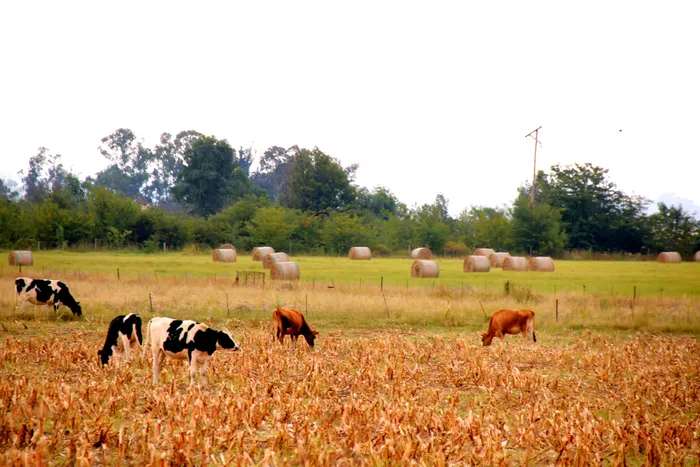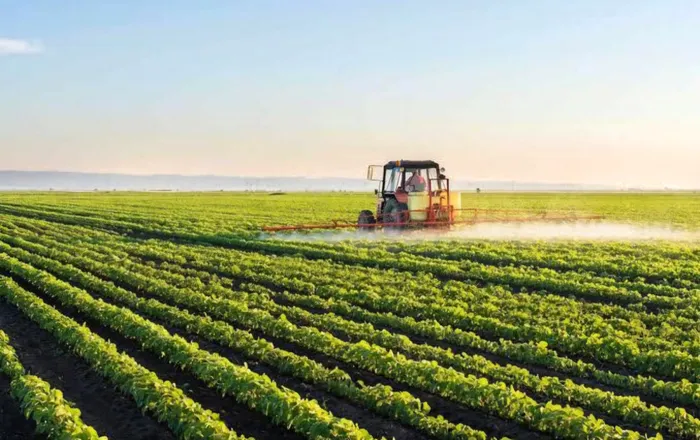
South Africa’s agricultural sector remains one of the few areas of the economy to consistently generate jobs and income.
Image: Nicola Mawson
In a time of economic uncertainty, South Africa's agricultural sector has emerged as a beacon of hope, recording a remarkable growth of 15.8% in the first quarter of 2025. This impressive performance has not only added 0.4 percentage points to the country's overall GDP growth but has also starkly contrasted with declines in critical sectors such as manufacturing, mining, electricity, and construction. The surge in agricultural output is primarily driven by increased activity in the horticulture and animal products sectors, underscoring the stabilising role agriculture plays during economic downturns.
The National Agricultural Marketing Council (NAMC) said as the agricultural sector flourishes, South African agricultural exports have also seen a significant uplift, climbing by 6% from the previous quarter and an impressive 10% year-on-year, culminating in a value of US$3.35 billion (R61 billion). This growth has been significantly bolstered by the rising demand for horticultural and grain commodities, including grapes, maize, and apples. Notably, the international demand for South African animal products remains robust, with bovine meat exports soaring by 31% compared to the previous year, despite ongoing biosecurity challenges.
The importance of this agricultural growth extends beyond mere statistics; it plays a critical role in poverty alleviation, particularly in low-income areas. Research indicates that growth in the agricultural sector can triple the potential reduction of poverty compared to growth in other sectors. In South Africa, agriculture supports approximately 956,000 jobs, with the broader agriculture and agro-processing industry employing an estimated 1.199 million people—surpassing the ambitious target set by the Agriculture and Agro-processing Master Plan (AAMP).

South Africa's agricultural sector has emerged as a beacon of hope, recording a remarkable growth of 15.8% in the first quarter of 2025.
Image: Supplied
However, this promising trajectory is not without its challenges. The recent hike in fuel levies, which increased petrol and diesel levies by 16 and 15 cents per litre respectively, poses a significant threat to the agricultural sector's growth. The government anticipates raising an additional R20 billion in tax revenue with this move, positioned as a strategic alternative to raising the value-added tax (VAT). Yet, for farmers, this hike represents increased input costs, particularly critical for an industry where fuel accounts for about 13% of variable costs in primary production and agri-logistics.
The timing of the fuel levy increase, alongside soaring electricity tariffs, has stifled the benefits of concurrent global oil price reductions. Agricultural producers, heavily reliant on energy-intensive processes, are now grappling with rising costs that impact not only transportation and machinery operations but also the affordability of basic food items for consumers, particularly in lower-income households.
However the NAMC, said the cascading effects of the fuel levy increase may lead producers to limit output or shift to less fuel-dependent practices, further exacerbating the food supply challenges faced by marginalised agrarian households. It said concerns are mounting that the rising prices will render staple food items less accessible for vulnerable populations, potentially reversing the gains made in poverty alleviation.
"To counteract these adverse effects, several proactive measures are being suggested. First, enhancing the existing diesel fuel rebate scheme could ensure more inclusive access for smallholder and emerging farmers, leveraging their economic potential. Secondly, investments in rural transport infrastructure, alongside promoting alternative energy sources such as solar-powered irrigation and electric farming machinery, could fortify the sector's resilience against fuel price volatility.
Finally, fostering collaborative efforts among the government, farmer organisations, and agribusiness stakeholders under the AAMP will be key in formulating adaptive policies that alleviate the inflationary challenges posed by the fuel levy. Such initiatives will not only secure food for low-income households but also advance the sustainability of the agricultural landscape in South Africa.
While the agricultural sector in South Africa showcases remarkable growth and potential, it is imperative to address the challenges posed by rising costs and external pressures. By investing in infrastructure, supporting smallholder farmers, and fostering collaboration, South Africa can ensure that its agricultural sector continues to thrive, providing food security and economic stability for its citizens.
Related Topics: